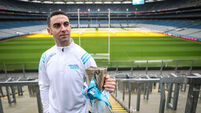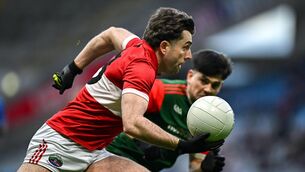‘Ireland are a lot like Mayo have been the last few years’

It’s a long way from the Newlands Stadium in Cape Town, South Africa to Tuam Stadium in the heartland of North Galway, especially if you go via The Twickenham Stoop, the Vélez Sarsfield in Buenos Aires, and a few laps of MacHale Park in Castlebar, but Gavin Duffy has played in them all, and in doing so, has rather silently compiled one the most compelling sporting CV’s of any Irish man or woman these last two decades.
He has done so living amongst us, like the lead character in the TV show The Americans —- hiding in plain sight.














